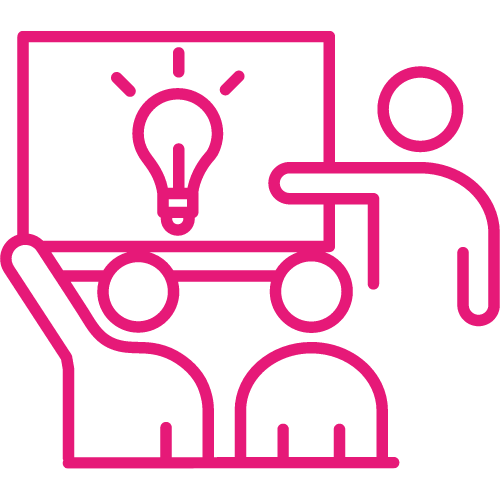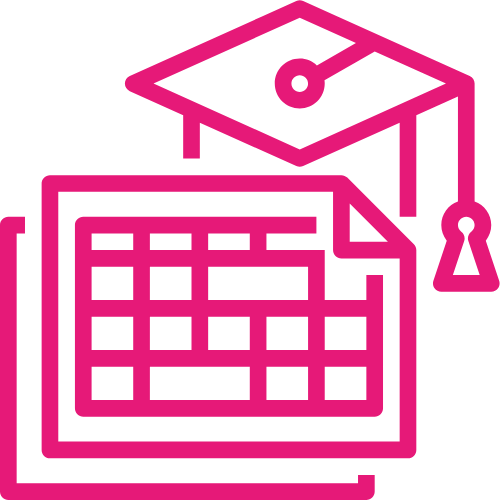Written by Lindsey Dawson, Professional Learning and eLearning Manager, Equal Education Partners.
The MIT Science and Engineering Programme for Teachers (SEPT) has been running since 1989 and each year invites a cohort of teachers from all over the world to MIT. Teachers participate in lectures from world leading scientists, try out the latest technology, and get the chance to network with a like minded group of innovative educators for the week. Due to the pandemic, restrictions meant that the 2020 and 2021 programme had to be moved online.
As a science teacher and the Professional Learning Manager at Equal Education Partners, I was extremely excited and privileged to take up the opportunity to attend the 2020 programme that was rescheduled in person for 2022. Attending the programme not only strengthened our partnership with MIT, but provided a wealth of resources to share with other STEM teachers in Wales. If you are a STEM teacher then the content from these sessions is not to be missed. It is impossible to cover everything from the week in one post, but keep reading for a small taste and some useful links.
International Exposure
Teachers travelled from all over the USA, Germany, Spain and Wales to attend the programme. We were put up in student dorms (shared rooms, the real US experience?!) for the week and got an unrivalled chance to network and share experiences of STEM education, whilst also enjoying some down time exploring Cambridge, MA. The power of being back to in person events really strengthened the relationships that were built during the online version of the programme in 2020, and allowed the chance for new ones to develop organically during our time there. We shared experiences of different education systems that sparked many ideas that each of us took back to our home countries.
Transformative Resources
Sessions included a mix of lectures delivered by professors and researchers from a variety of disciplines, hands-on practical workshops and even a night at the Boston Museum of Science! We had an exclusive closed to the public tour of the arctic adventure and engineering design exhibits, before enjoying small plates, wine and views over Boston in our private evening workshop about the engineering design process.
Examples of other sessions include (but are not limited to):
-
Why learn Chemistry and Biology? Professor Catherine Drennan, MIT Howard Hughes Medical Institute.
Click here for resources developed by this lab that relate textbook chemistry concepts to current research and applications.
Click here for more free chemistry resources.
-
Changing the world one App at a time – MIT App Inventor, Professor Hal Abelson, Department of Electrical Engineering and Computer Science
MIT App Inventor has a mission to democratise app development globally. App inventor aims to be used to address authentic challenges with solutions that can impact your life, family, friends, community, even city and country. Any school student can do this and have a real impact. The computing power of mobile devices and global infrastructure allows this to happen.
-
RAICA – Responsible AI for Computational Action. The Responsible AI for Computational Action (RAICA) curriculum consists of project-based learning modules that prepare middle school students to be informed consumers and ethical producers of AI.
-
EN-ROADS climate action simulation. ‘Research shows that showing people research doesn’t work’- Prof. John Sternam. The MIT SLOAN Sustainability Initiative has developed a free to access online simulation model called EN-ROADS. This models the effect of making changes to various actions on global temperature increase.
-
Games for learning – Prof. Eric Klopfer, Scheller Teacher Education Programme (STEP) and Department Head for Comparative Media Studies and Writing at MIT
-
How plants bring sunlight to life – applying lessons from plant biology to ensure ecological sustainability and crop resilience, Dave Des Marais- Plant Biologist, Assistant Professor of Civil and Environmental Engineering MIT
-
Using weather balloons and cubesats to learn about space exploration
In addition to the sessions provided we were given an optional walking tour map of the MIT campus and a number of us decided to self guide (somewhat successfully) on one of the beautiful summer evenings. I was lucky enough to meet up with one of our GTL instructors Melissa one evening who very kindly gave me a behind the scenes look in her building on campus, thanks Melissa!
I really can’t recommend this programme enough. It was truly transformational and the wealth of resources that I have brought back from it are inspiring big plans for our work in STEM education in Wales.
What next?
Have a look at some of the free online courses offered by MIT Open Learning Library. Titles include: online learning for educators; becoming a more equitable educator and youth activism.
Why not apply for SEPT 2023? If you’d like to take part in SEPT 2023, get in touch with Equal Education Partners for more information.
Reach out to Lindsey Dawson, Equal Education Partners’ Professional Learning Manager at lindsey.dawson@equaleducationpartners.com




